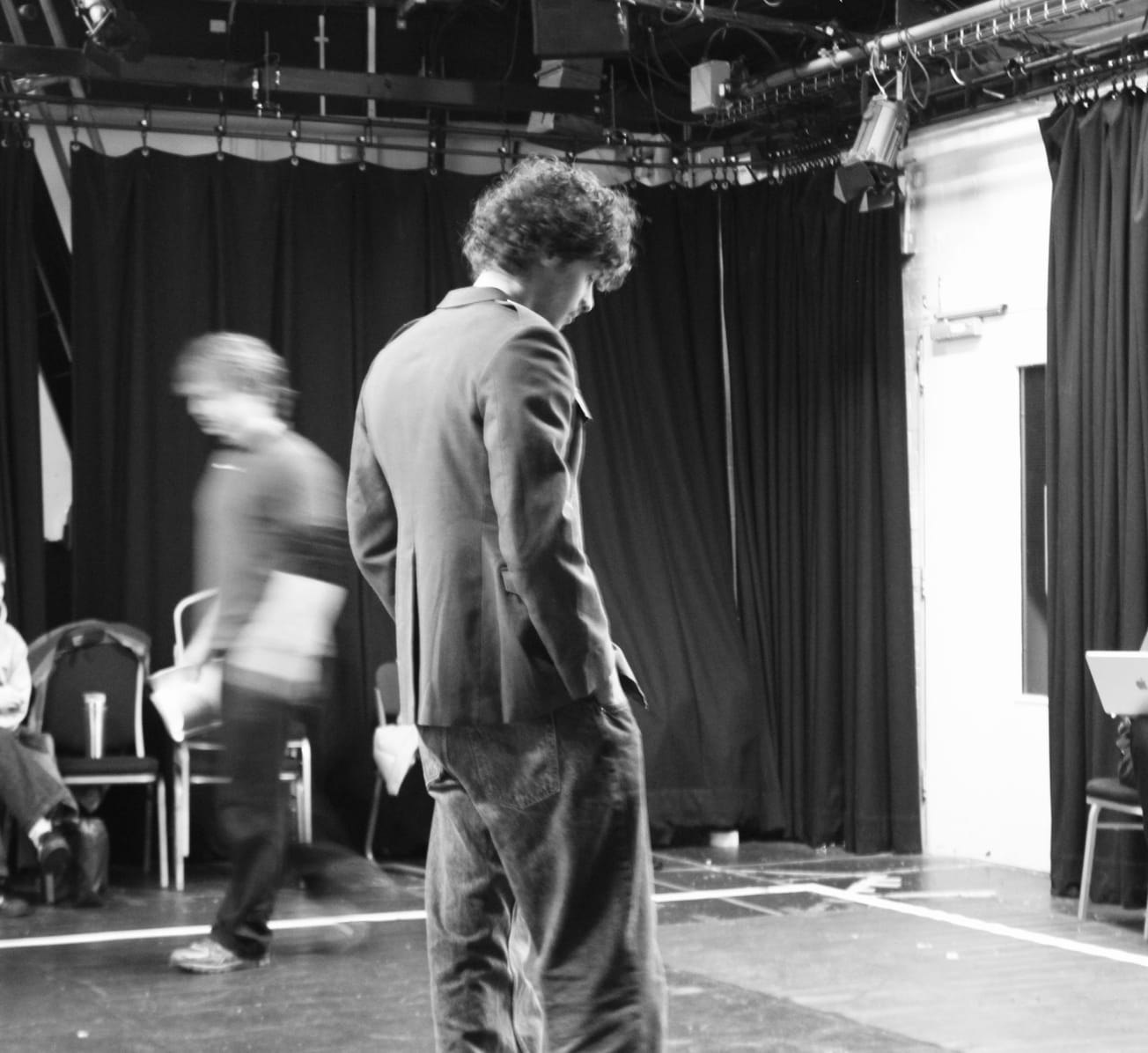Comment Editor Ed Southgate sinks their teeth into the issue of men's mental health in Popcorn Productions' Into the Deep.
To many, the role of theatre is grounded within exploring and tackling issues that confront society. This can often prove dangerous for a director, though; with sensitive issues, as most of the prevalent ones are, the balance must be found so as not to over-dramatise it to the extent that we do not recognise its truth within our world, but equally not underplaying it so that it has no effect.

Facebook / Popcorn Productions
As a sensitive topic that still lacks enough discussion, Popcorn Productions’ decision to explore men’s mental health with Into the Deep was both daring and necessary – but they certainly do it justice.
a sense of confusion, of desperation, and of wanting to escape
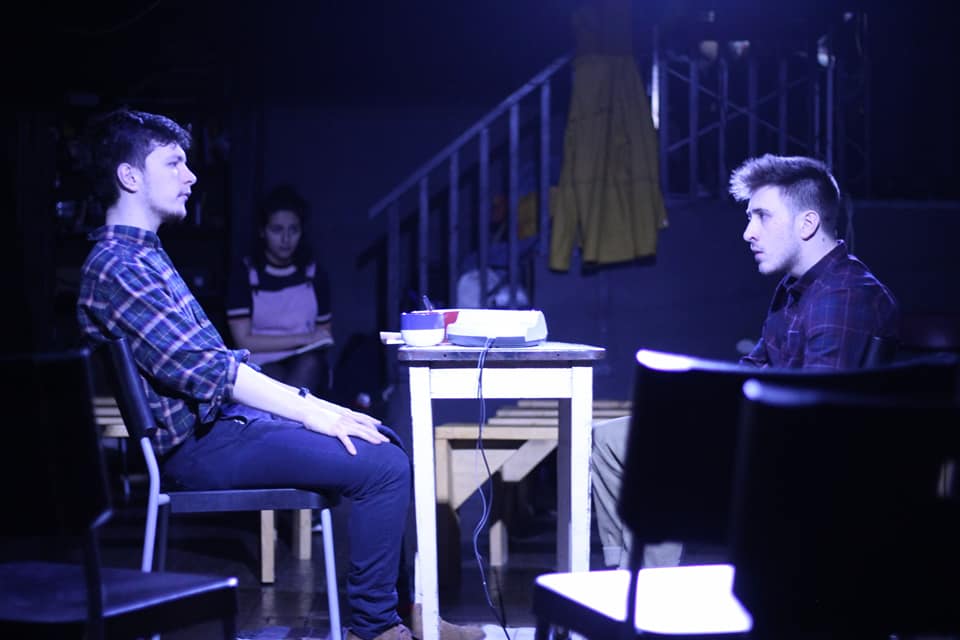
Facebook / Popcorn Productions
The play tells the story of Thomas Lewin (Ed Lees) and his family, as he struggles with the difficulties of his own mental health and their economic situation in rural Cornwall. The piece was previewed last year, but has since been developed and extended into something ‘bolder, more exhilarating than before’.
a play about entrapment in every possible sense
It is no surprise that the same venue was chosen for this extended piece. The Room Upstairs is small and naturally rustic which, given director Layla Madanat’s decision to stage it in traverse, created both an intimate atmosphere, but also one in which it certainly feels as though the characters are trapped in a domestic space that we intrude upon when finding our seats.
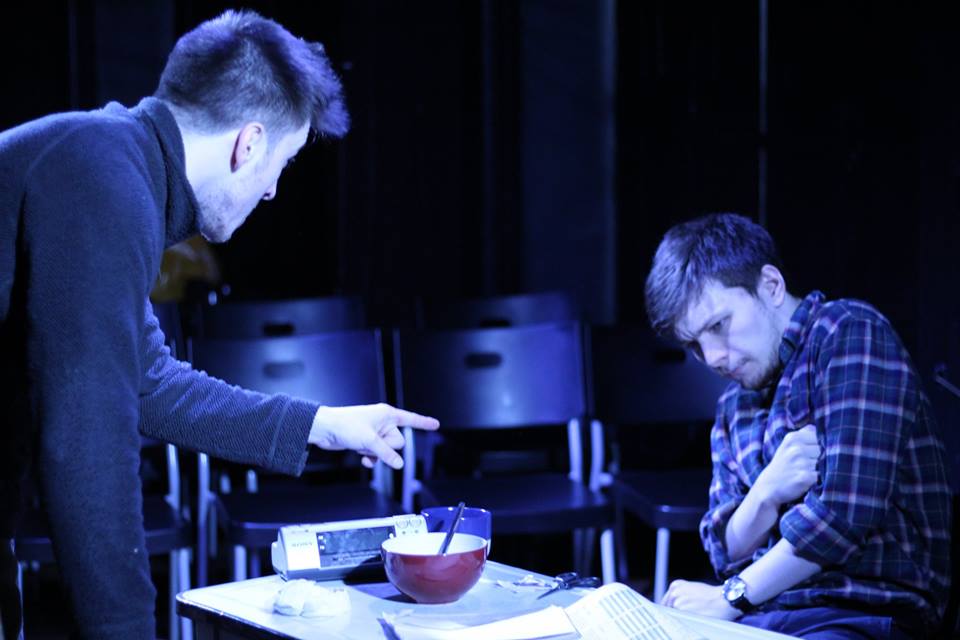
Facebook / Popcorn Productions
This is a play about entrapment in every possible sense; from Tommy being trapped within an abusive household as a child, to later being trapped in poverty, coupled with being trapped psychologically. This of course has knock-on effects for his children, in trapping them within the cycle of poverty that he found himself in, which we can then assume to impact on their own mental health.
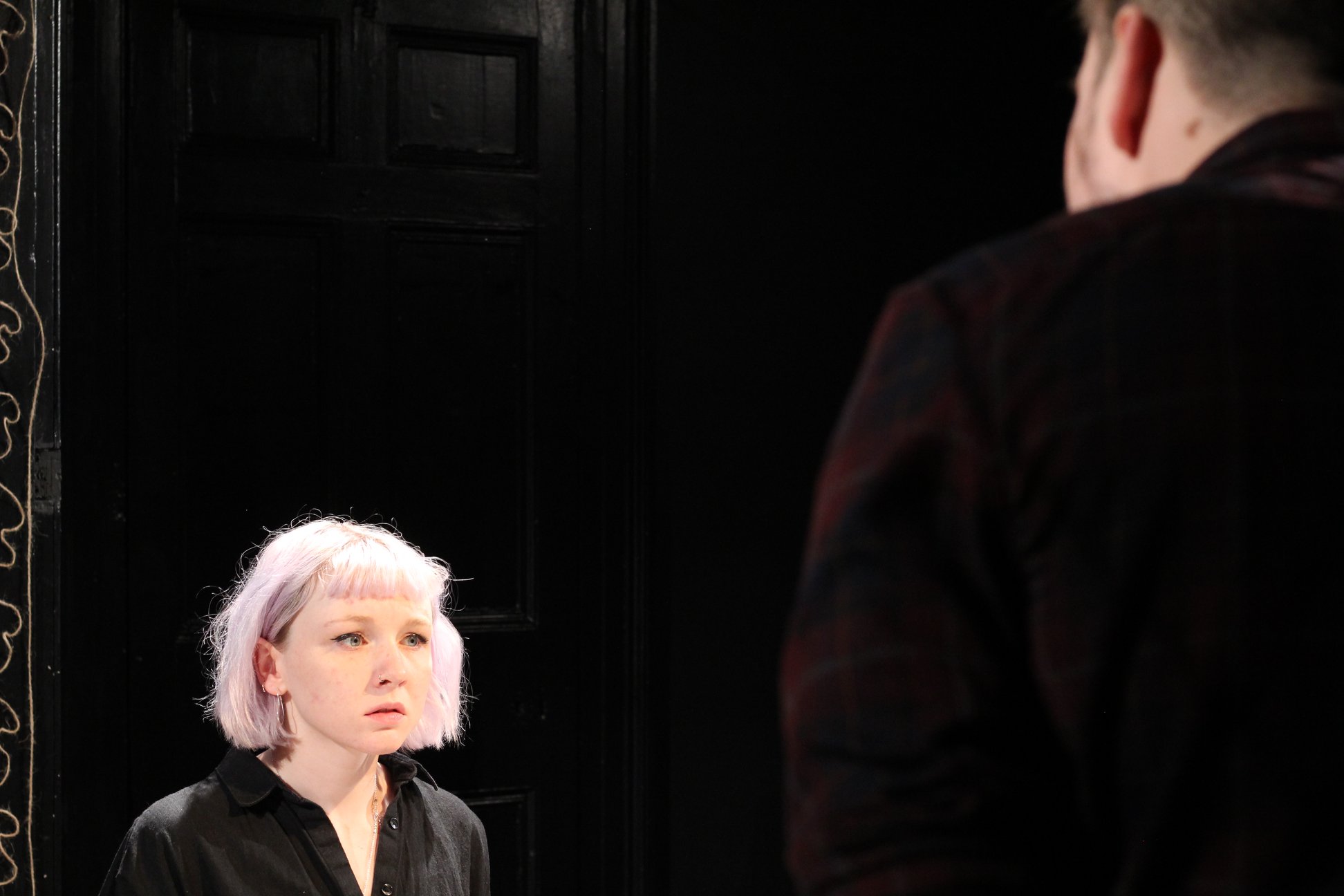
Facebook / Popcorn Productions
Framing the production with a simple yet effective choreographed display of torchlight in darkness, for me, serves its purpose to this. It ignites a sense of confusion, of desperation, and of wanting to escape this rural life and broken family but having no clear way out. Indeed, the production is on the whole chillingly simple.
The set is merely a table, two chairs, some cereal, a kettle, a newspaper, with no unnecessary distractions and nothing that seems out of place. In short, we are not permitted the opportunity to see this world as anything but true, nor the opportunity to focus on anything but the actors and their story.
the strength of this show lies in how it does not adhere to generic presentations of one single person with mental health difficulties
This haunting simplicity is reflected further in the script, and the excellent delivery of it from all four actors. Following an overture of radio announcements of news events from the death of Martin Luther-King up to the present day and a choreographed sequence of torches shining through the darkened space, we meet Marlon (Ned Costello) and Carla (Molly Honer).
Marlon’s sarcasm towards his sister creates suitable comic moments to construct a sibling-relationship that is instantly recognisable, but both actors never let us forget that there is some underlying tension that carries through the play. It is even more touching, given this tension, when Marlon later held his distressed sister, telling Tommy ‘she needs her Dad’ after he insisted she needs her medication.
Lees' effective transitions between ... fragile boy to being a broken man ... accurately present[s] and damn[s] the pressures of working-class men
Indeed, the strength of this show lies in how it does not adhere to generic presentations of one single person with mental health difficulties in one single space of time but shows the inescapable effect of one’s psychological distress on one another. This is largely achieved through the non-linear chronology, which allows us to see how Tommy being let down as a child results in his inability to support his own children too.
it would be too easy to show William as an archetype of ‘toxic masculinity’, but Alldridge aptly maintains him to be true.
The effective transitions between modern day and the past, in which certain lines are repeated or spoken in unison to emphasise the mirror between Tommy as a child and Marlon, and between Tommy as a father and William Lewin (Chris Alldridge), is testament to this. From this, as well as the excellent chemistry between all four actors, it becomes a show in which no one is wholly individual; the unaddressed mental difficulties of Tommy inevitably affects the lives and mentality of his children.
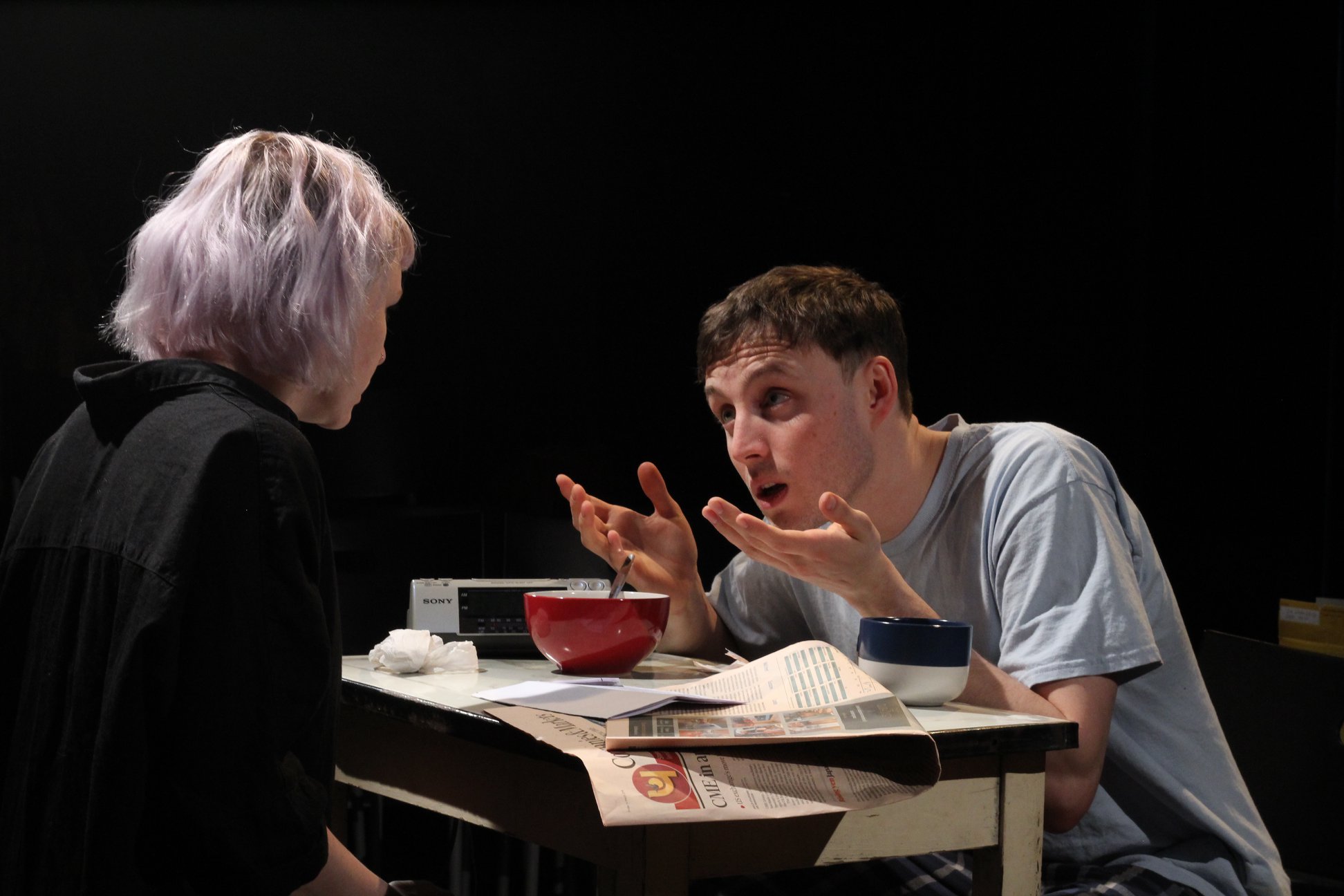
Facebook / Popcorn Productions
Because of this, despite William Lewin being the least-appealing character, it is hard to feel hostility to any of them. Praise should be given to Chris Alldridge and Ed Lees; it would be too easy to show William as an archetype of ‘toxic masculinity’, but Alldridge aptly maintains him to be true.

Facebook / Popcorn Productions
Similarly, Lees' effective transitions between Tommy as a fragile boy to being a broken man - attempting to be assertive - allows the show to accurately present and damn the pressures of working-class men and the knock-on effect throughout generations. The story of course focuses on Thomas’ life as a child to having children, but through his story we can suspect a similar past for William and a similar future for Marlon.
★★★★★
What are your thoughts on this production? Let us know in the comments below or on social media





